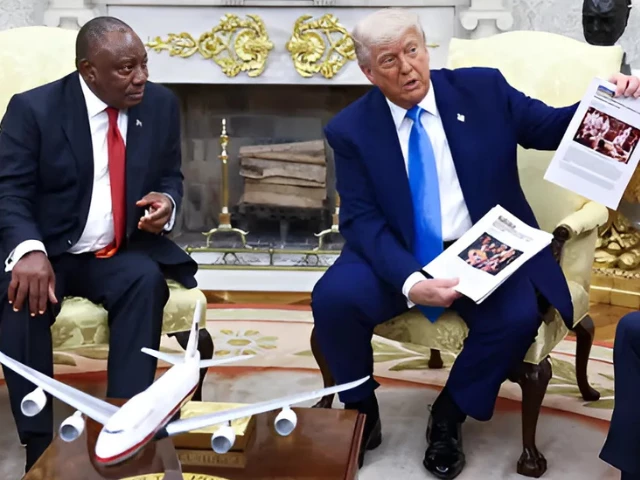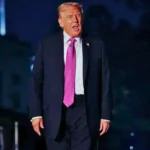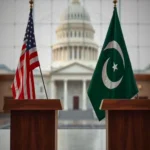Analysis of the Controversial Trump-Ramaphosa Meeting: White Genocide Claims and Diplomatic Fallout
The May 21 meeting between U.S. President Donald Trump and South African President Cyril Ramaphosa, intended to mend strained relations, instead escalated tensions over debunked “white genocide” claims and land reform policies. Here’s a breakdown of the key issues and their implications:
1. Trump’s “White Genocide” Allegations and Factual Inaccuracies
-
False Burial Site Claims: Trump played a video showing rows of white crosses, claiming they marked graves of murdered white farmers. However, the footage was from a 2020 protest memorial for a slain couple, not a burial site, and unrelated to systemic violence 913. Another image he presented was from the Democratic Republic of Congo, misattributed to South Africa .
-
Misrepresented Crime Data: Trump asserted that white farmers face genocide, citing unverified articles. Official data shows 44 farm-related murders in 2024, with only 8 victims confirmed as farmers (race unspecified). Broader crime statistics reveal most murder victims are Black South Africans .
-
Right-Wing Conspiracy: The “white genocide” narrative has been pushed by far-right figures like Elon Musk and Tucker Carlson. South African courts and researchers dismiss it as a myth, with a judge calling it “clearly imagined” .
2. Ramaphosa’s Rebuttal and Diplomatic Tactics
-
Calm Demeanor: Ramaphosa, a veteran negotiator, countered Trump’s claims by emphasizing that opposition rhetoric (e.g., Julius Malema’s “Kill the Boer” song) does not reflect government policy .
-
Strategic Delegation: He brought white business leaders (e.g., golfer Ernie Els, billionaire Johann Rupert) to disprove persecution claims, quipping: “If there was genocide, these gentlemen wouldn’t be here” .
-
Focus on Trade: Ramaphosa pivoted to economic discussions, proposing critical mineral deals and LNG imports to salvage the meeting .
3. Land Reform: The Core of U.S.-South Africa Tensions
-
Expropriation Law: Trump condemned South Africa’s 2024 Expropriation Act, which allows land redistribution (with/without compensation) to address apartheid-era inequalities. No confiscations have occurred under the law .
-
Wealth Disparity: White South Africans (7% of the population) own 70% of private land, while Black citizens (81% of the population) hold just 4% . The law aims to rectify this imbalance for public projects (e.g., infrastructure) .
-
U.S. Retaliation: Trump cut $440 million in aid (mostly HIV/TB programs) and offered asylum to white Afrikaners, citing “racial discrimination” . Over 67,000 South Africans expressed interest in U.S. resettlement .
4. Broader Diplomatic Fallout
-
Strained Relations: The meeting followed U.S. sanctions, aid cuts, and the expulsion of South Africa’s ambassador . Trump’s theatrics risk alienating other global leaders .
-
Global Reactions:
-
South African Media praised Ramaphosa’s restraint but criticized Trump’s disrespect .
-
Business Groups like AgriSA denounced “disinformation” about land seizures, warning of investment harm .
-
A Clash of Narratives
The meeting highlighted two opposing views:
-
Trump’s Narrative: Framing South Africa as persecuting whites to appeal to his far-right base.
-
Ramaphosa’s Reality: Land reform as a constitutional redress for historical injustice, with crime affecting all races.
The fallout underscores deepening divides over race, sovereignty, and U.S. interventionism—with South Africa refusing to be “bullied” . Future relations may hinge on whether Trump attends the 2025 G20 summit in Johannesburg .







